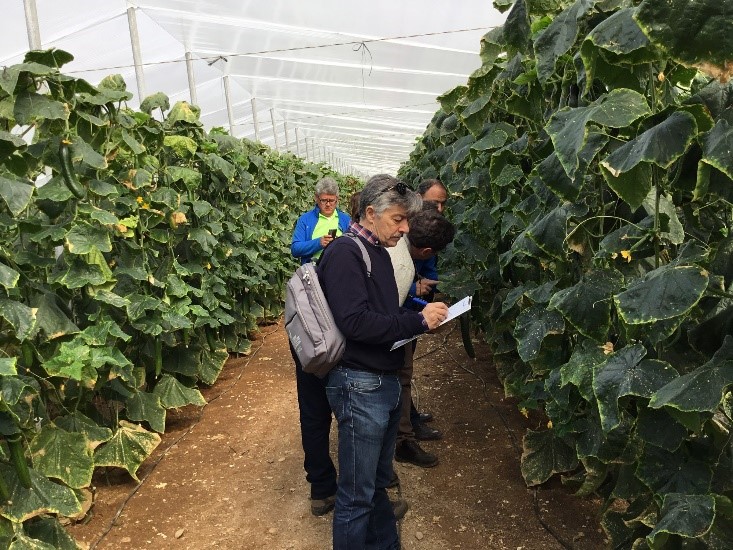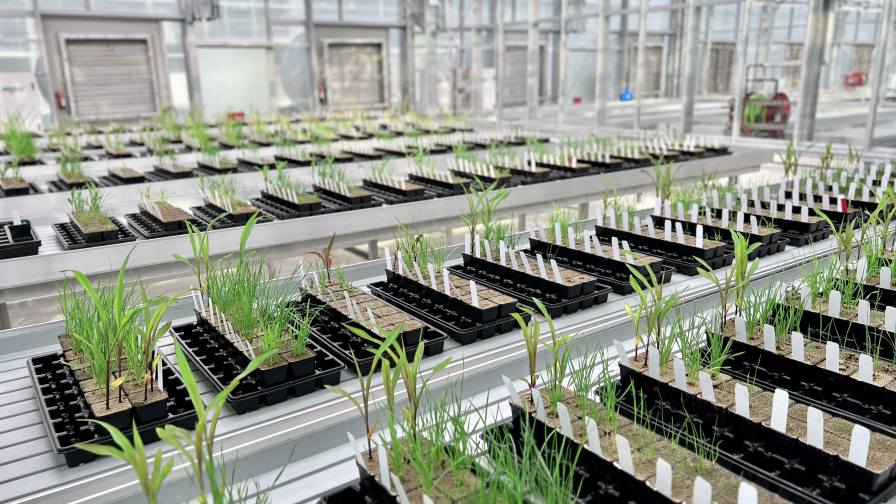A Year Of Change
A new and improved CropLife International moves full speed ahead in 2007. The Brussels-based global federation representing the plant science industry has undergone an extreme makeover. The revamped federation aims to help ensure a favorable regulatory environment for the plant science industry and facilitate farmers’ access to the wide array of products they need to improve agricultural productivity, protect the environment, and increase incomes. As an ambassador for the industry, CropLife promotes the benefits of crop protection and agricultural biotechnology, their importance to the sustainable production of high quality food, feed, fibres, and fuel, and their responsible use through stewardship.
The leaders of the largest plant science companies (known as the President’s Advisory Group of the old CropLife International) recognized that the industry needed a forum to coordinate strategies and more effectively manage plant biotechnology issues that transcend national and regional boundaries. They tapped industry veteran Howard Minigh to work with their companies to lead the change. The new federation design emerged last summer with a modern governance structure and expanded membership. The new CropLife International features two autonomous strategy councils, one devoted to plant biotechnology and the other focused on classical crop protection. The top leaders of the major plant science companies comprise the new Board of Directors. Minigh serves as president and CEO, and currently oversees the biotech strategy council. Christian Verschueren continues as director general and leads the crop protection strategy council. As part of CropLife’s member-driven approach, senior executives of member companies and associations serve on the strategy councils. The strategy councils prioritize issues for the respective technologies, develop and coordinate global strategies, align industry positions on political and regulatory issues, propose and allocate budgets, and oversee execution of strategic plans.
The new structure builds on CropLife’s history of successfully representing the crop protection industry. A hallmark of that tradition is volunteer service by company experts on committees and task forces, working cooperatively with CropLife staff. Greater integration, coordination, and clarity on a global level will optimize the impact of regional programs and increase the effectiveness of local implementation of global programs.
For the first time, CropLife International is open for company and biotech association membership. CropLife already supports a network of regional and national crop protection associations in more than 90 countries. Expanding this base will help bring a greater diversity of perspectives to the forum, and enable the councils to develop better strategies, resolve challenges, create synergies, and more effectively coordinate advocacy and outreach efforts around the world. CropLife believes that a cohesive global network of effective associations is critical for success. Therefore, maintaining active associations, including in resource-poor regions such as Africa, is also very important.
Key Priorities In 2007
On the crop protection side, the politicization and inefficiency of regulatory processes remains a key issue, along with the erosion of intellectual property rights in some key markets. More emphasis and investment is being made at the global, regional, and national levels on improving intellectual property protections, specifically in relation to data protection and anti-counterfeiting. CropLife continues to advocate for risk-based regulatory decisions, as well as demonstrating and communicating the responsible behavior of industry through adherence to international standards and proactive product stewardship. Stewardship programs around the world, and particularly in developing countries, will be streamlined and aligned around key measurements and goals, with a focus on farm-level product use.
Industry is substantially increasing its focus on plant biotechnology issues, and the new CropLife structure is already delivering results. On the regulatory front, many challenges remain, ranging from establishing an environment to support regulatory systems that produce timely product approvals based on science, to practical solutions to implementing the Biosafety Protocol (BSP), to realistic policies for dealing with adventitious presence (AP), to laying the foundation for emerging technologies. As biotechnology increasingly offers valuable products to developing countries, innovator investments need to be adequately protected. The plant science industry is working to ensure protection of variety advances at the same pace as the increasing level of investment and sophistication of the modern tools used to create better seeds. Work will continue on increasing food industry and ultimately consumer confidence in biotech-based ingredients as new products that help improve health and offer other consumer benefits come to market. Grower advocacy will be an integral part of building downstream support. Moreover, industry’s biotech stewardship initiatives are being strengthened, with more workshops on field trial compliance management occurring in developing countries and with increased emphasis on developing industry best practices.
Organizing and participating in broader coalitions involving other industries and stakeholders is another important element of CropLife’s approach. Partnerships for stewardship programs (e.g., with the Gates Foundation on resistance management, with the US Environmental Protection Agency (EPA) and USAID in Safe Use LatAm, with the Asian Vegetable Research and Development Centre in Safe Use/IPM Asia, with IFDC in Safe Use/IPM Africa) are in place and achieving results. Broad coalitions across various industry sectors (grain trade, seed, and food industries) are working to more effectively advance solutions to key biotech issues, including adventitious presence and implementing the Biosafety Protocol.
Communication of the benefits of our industry’s products and technologies remains an important priority in 2007. The recent surge in interest in biofuels provides a fresh opportunity to highlight the essential role biotechnology and crop protection technologies play in meeting future food and renewable energy needs in a sustainable way.
CropLife International is building upon its solid foundation, and these changes will help move the organization to the next level of quality, effectiveness, and efficiecncy, delivering more value than ever to its members and external stakeholders. A busy and exciting 2007 is ahead for CropLife International.





